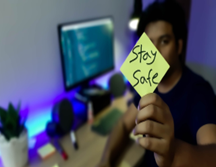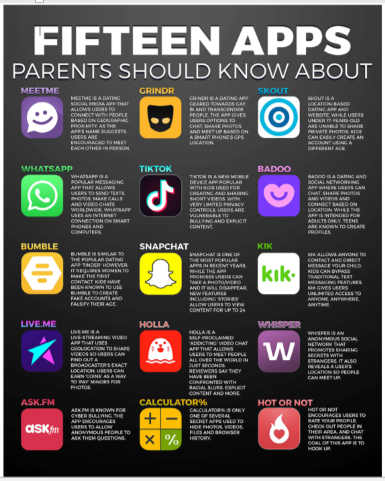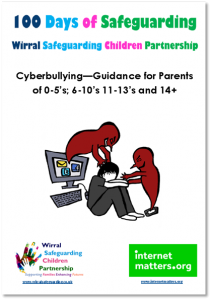Online Safety – Guidance for Parents
The internet is undoubtedly one of the greatest ever inventions and is an extremely useful tool for entertainment, staying in touch, sharing memories as well as finding out anything and everything. However, the internet is also full of danger which children need to be safeguarded from.
Keeping up to date with what your children are doing online can seem very daunting. Technology is constantly advancing and sometimes parents feel that their children know more about the internet than they do.
The guidance and links below are designed to help parent’s and carers to keep their children as safe as possible when online. Our best single bit of advice is to be curious about what your children are doing online, take an interest in their activities and regularly check what they are doing.
Helpful Hints and Tips
- Check that your internet service provider provides parental controls so you can add a layer of security for your children and filter out inappropriate content. The website links below also contain advice about this. If your child has a mobile phone check the settings on this too
- Talk to your child about online safety and take an interest in their activity. Especially encourage them to talk to you about anything which is worrying them online
- Keep online passwords safe and secure and change them often. Don’t let any of your networks be open or discoverable
- Agree ground rules for safe use of the internet at home. For example limit the amount of time children can spend online in any one go and restrict access at bedtime
- Be App aware. Many devices require downloading an app. You should check the privacy settings and permissions of any apps you download, as well as the product itself.
- Be device aware. Make sure your security settings include all internet enabled devices including smart TV’s and game consoles
- Report any concerns you have. The CEOP website below is full of really helpful information.
An updated list of 184 gaming and social media apps commonly used by young people is available here:Social-Media-Library-April-2019. The list includes the names and description of the apps.

Useful links and Sources of Information
Thinkuknow have created a new page of resources to support parents during COVID-19 and the closure of schools. Each fortnight, they will be releasing new home activity packs with simple 15 minute activities you can do with your child to support their online safety at a time when they will spending more time online at home.
Access the resources and more information on their website by clicking here.
Cyberbullying Guide
CEOP Website – The Child Exploitation and Online Protection Command website is part of the national Police’s response to internet safety. The website includes a function to instantly report any concerns about online behaviour.
Broadband Parental Controls – Advice to parent about setting parental controls on broadband internet from GoCompare
Safer Internet Day 5th February – Information and Resources.
Think u know website – Thinkuknow is an education programme from the National Crime Agency’s CEOP Command. Their website is full of really helpful guidance for parents, including action you can take if you are concerned about your child online.
An updated list of 184 gaming and social media apps commonly used by young people is available here: Social-Media-Library-April-2019. The list includes the names and description of the apps.
Nude Selfies and Sexting – guidance from thinkuknow
Gaming – guidance from thinkyouknow
Using Parental Controls – guidance from thinkyouknow
NSPCC Net Aware website – This is the digital safety website from the NSPCC. It contains a lot of very up to date information including guidance about the latest apps
Net Aware Apps and websites – A list of the latest apps and popular websites including a simple summary
Safer Internet website – The UK’s safer internet centre is a government backed hub of advice, including help and advice for parents and carers.
Internet Matters website – This website offers a number of useful guides about online safety for parents and carers
Please note the WSCP is not responsible for the content of external websites.


